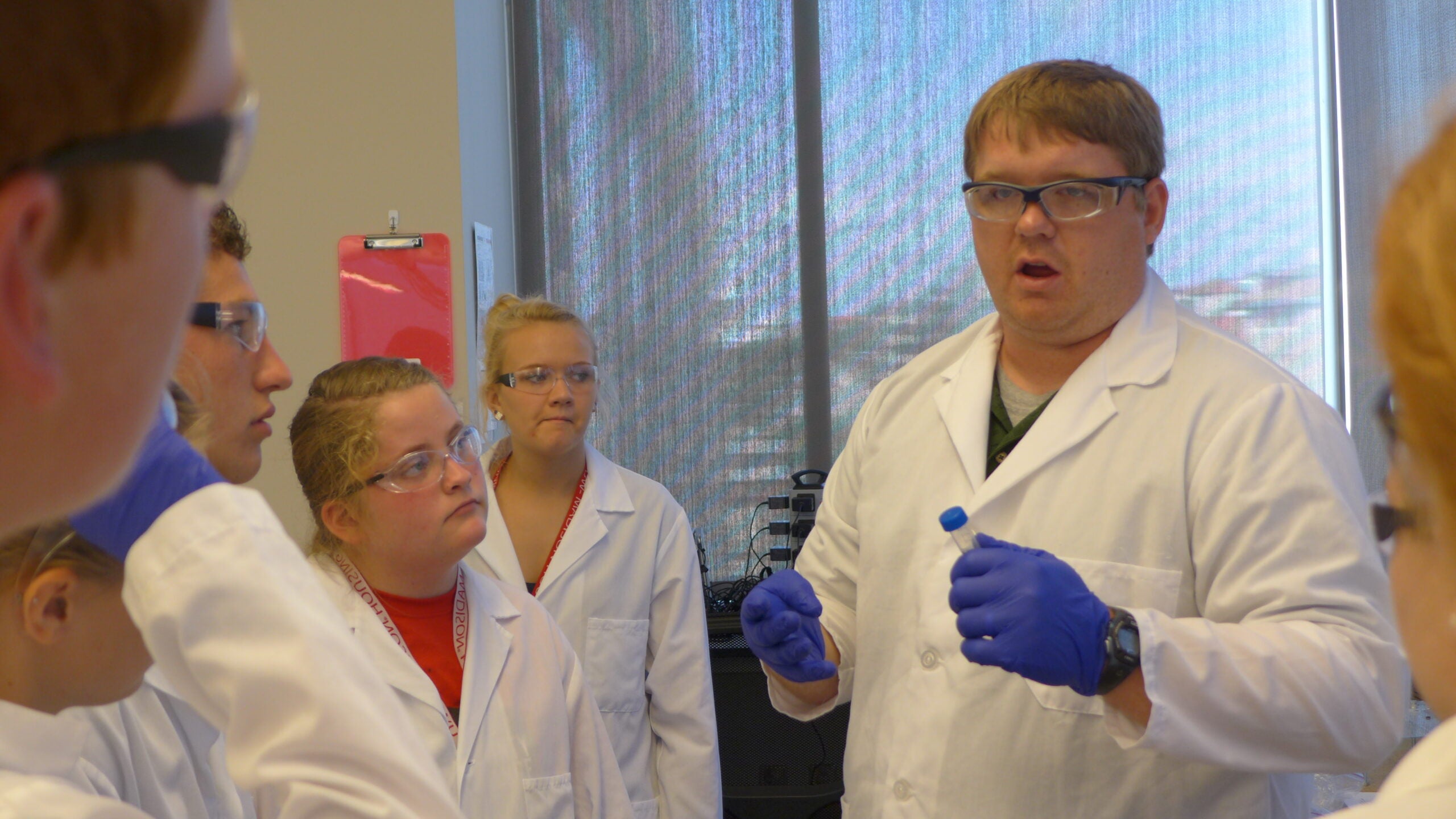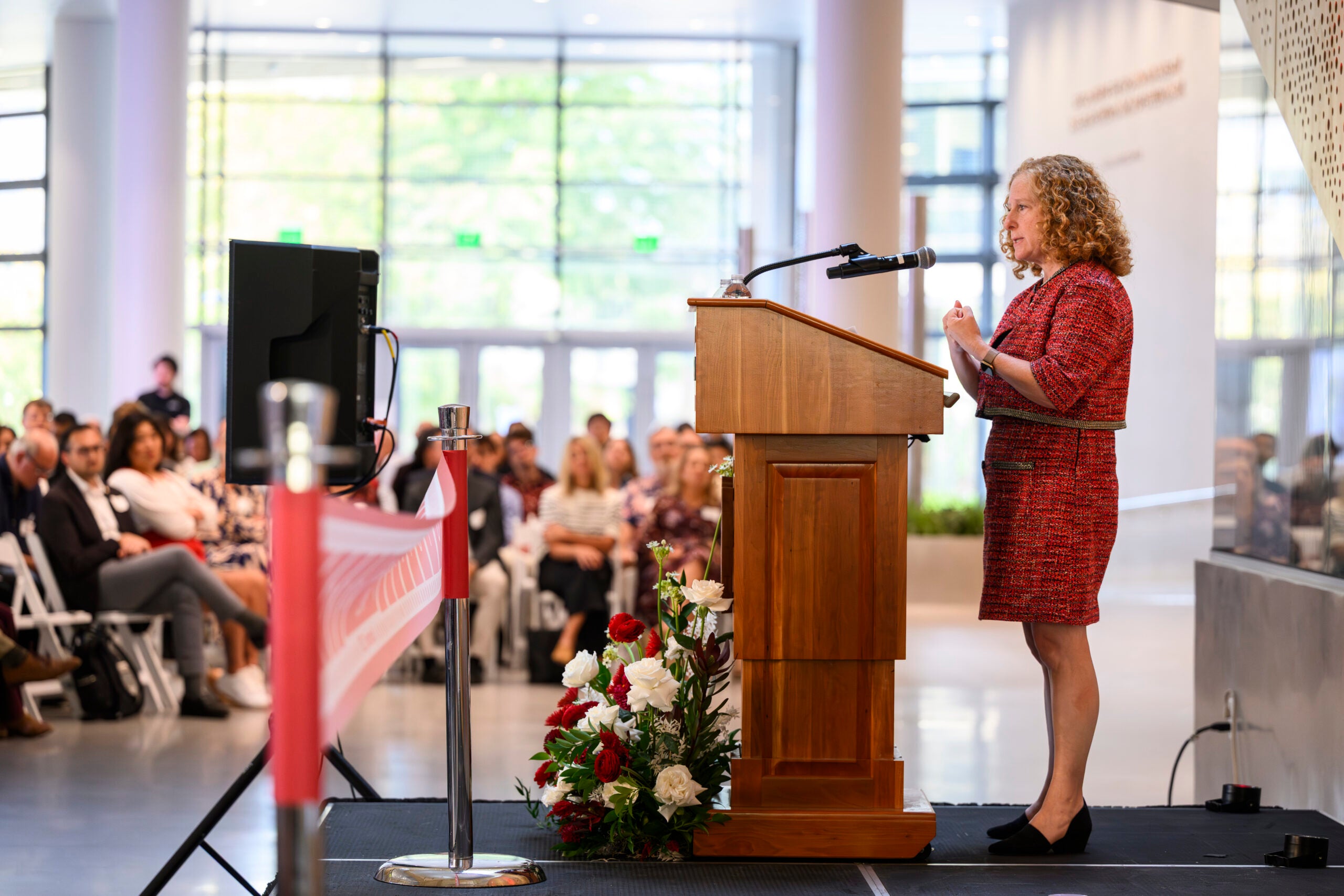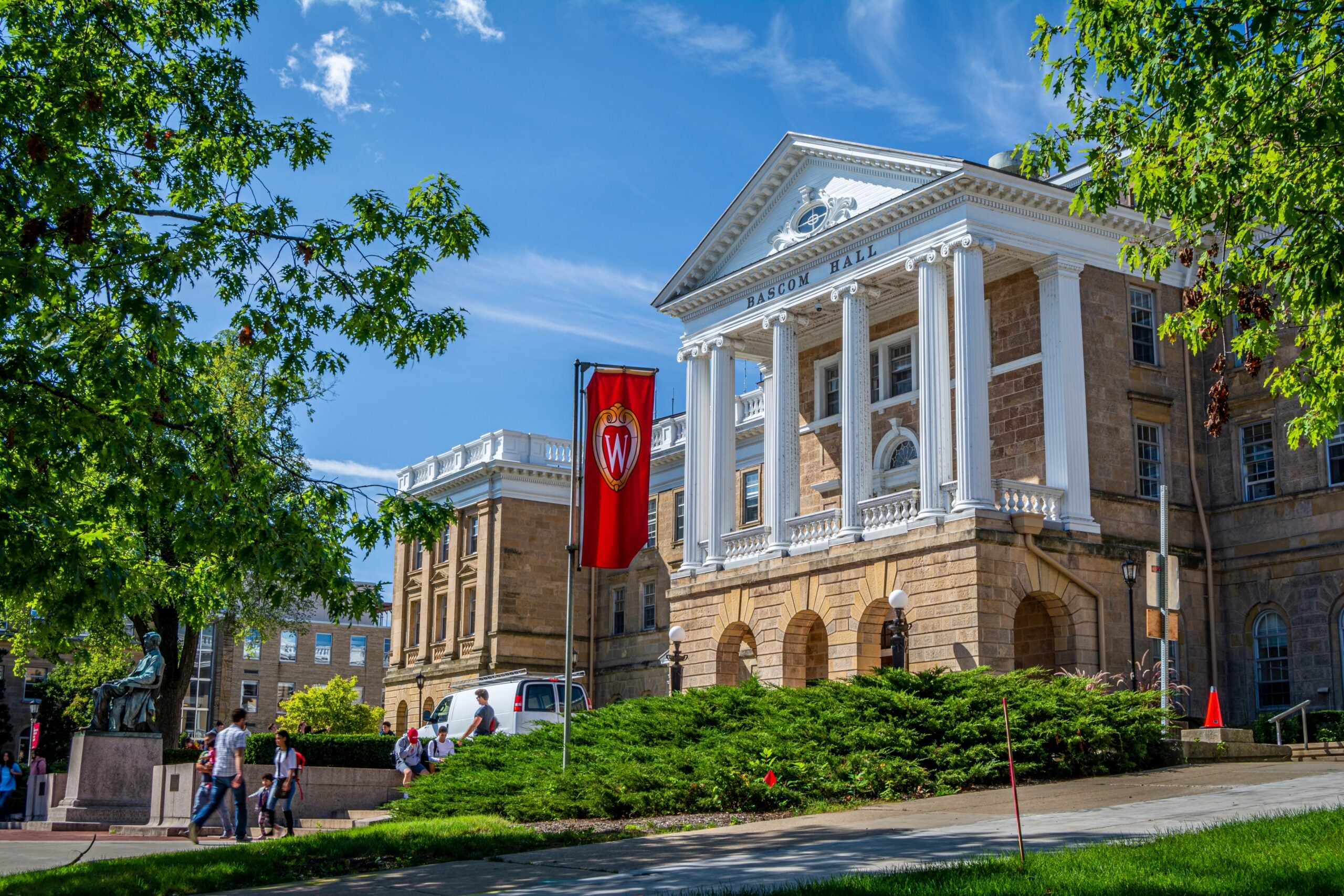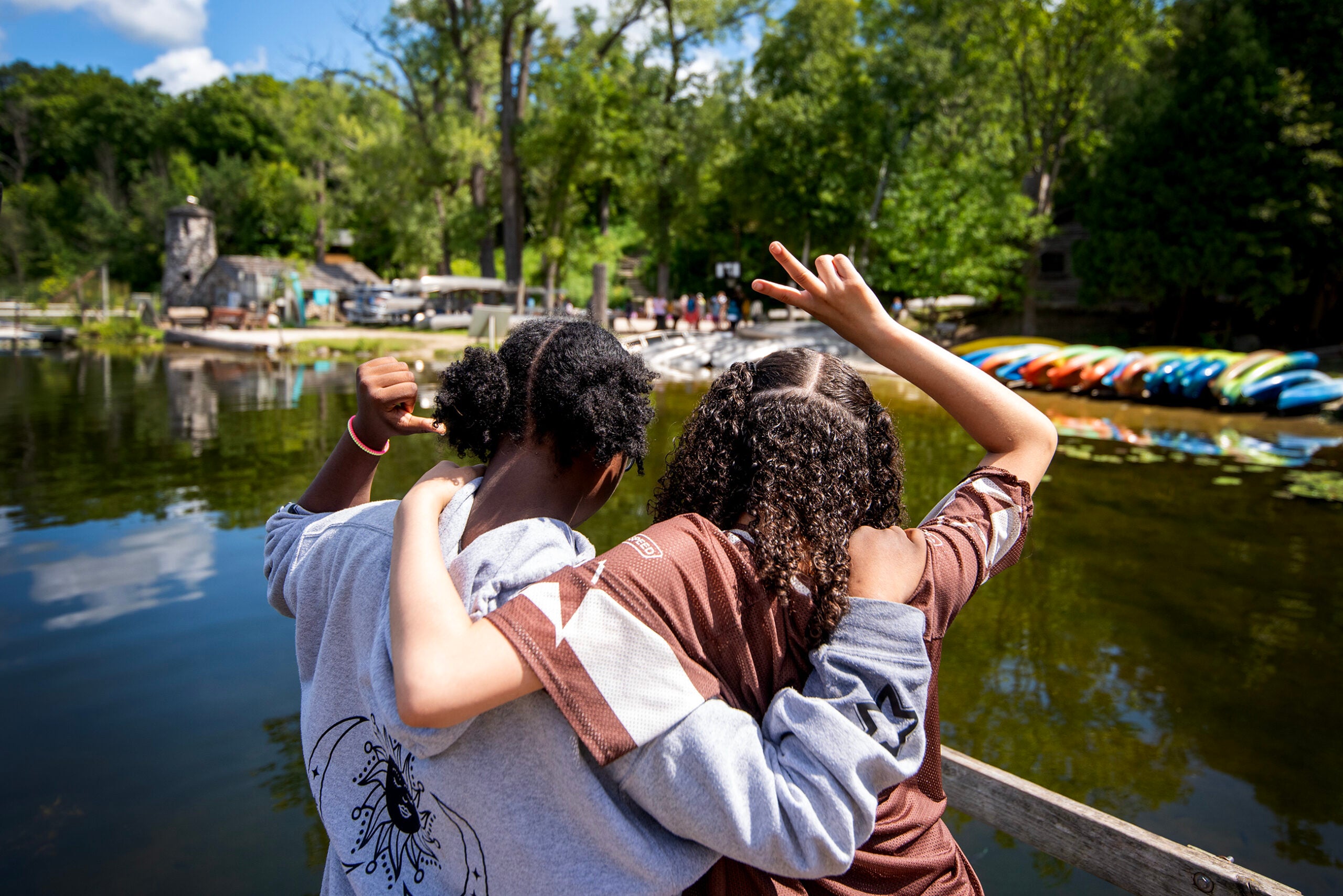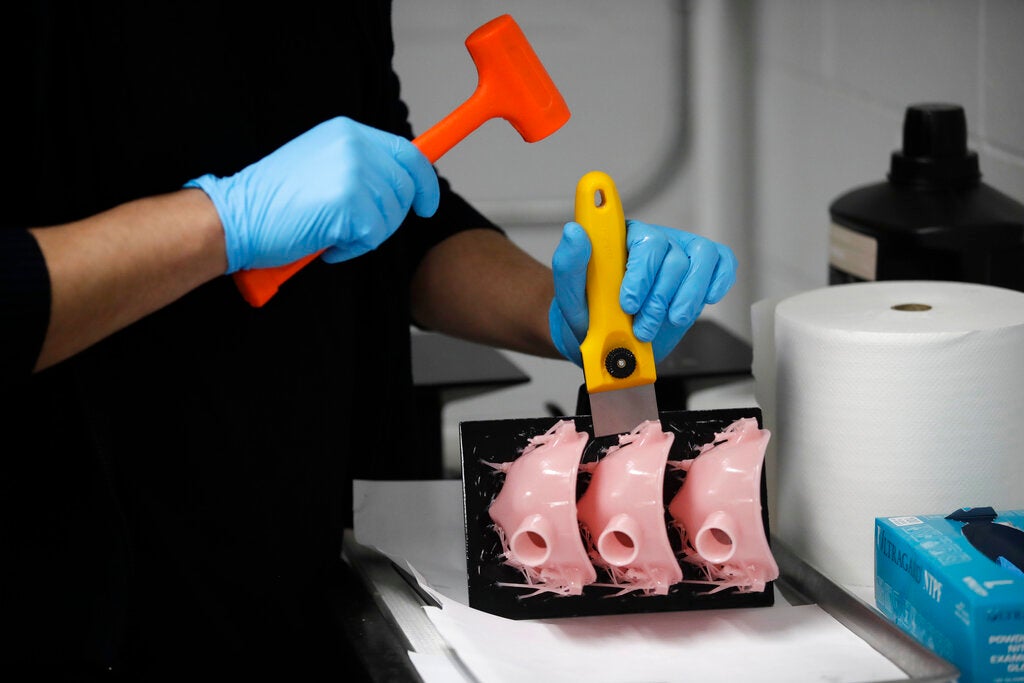For budding scientists, the University of Wisconsin-Madison annual summer science camp is one of the best places to be on a sunny summer day — even though school is officially out.
The camp is aimed at high schoolers from rural areas who are interested in regenerative medicine. The campus has been called the birthplace of human embryonic stem cells.
“This is like a once in a lifetime experience, just to come in and get the whole college experience,” said Cody Matyka from Rib Lake High School. “It’s just a great experience to have under your belt.”
News with a little more humanity
WPR’s “Wisconsin Today” newsletter keeps you connected to the state you love without feeling overwhelmed. No paywall. No agenda. No corporate filter.
On this day of the camp, the high schoolers are learning about the heart. It starts simple enough with a discussion about how fast the heart of a mouse beats compared to that of a whale. Then, it’s on to smaller, more complicated aspects of this vital organ: heart muscle cells known as cardio myocytes. These cells are used to study metabolism, human development and cell therapy, which could someday repair muscle damage from a heart attack, according to scientist Scott Canfield.
“There’s a large number of fields that have all stemmed from these stem cell derived cardio myocytes, and just the amount of work that’s been done in a relatively short time is truly impressive,” he said.
Canfield, a post-doctoral research associate in biological engineering, lectures the potential young scientists, all wearing safety goggles and white coats. The students leave their seats and put on latex gloves to examine heart muscle cells actually beating under a microscope. They’re going to see how those pulsing cells slow down or speed up when a certain drug is administered, Canfield said.
“So, we’re going to pull the plate out, we’re going to look at group zero, so zero nanomolar. We’re going to count for one minute how many contractions there are,” he said.
The rural districts that participate in the camp are given access to equipment and advanced education that they aren’t likely to have in their own schools.
The camp provides the kind of college readiness schools want their students to have, said Justin Gerlach, a biology teacher from Mishicott.
“The real life opportunity skills to take from the classroom setting to see how does this apply to my future career and what I could potentially do with science,” Mishicott said.
Morgan Hanson, a student at the camp, said she hopes participating in the camp will lead to a career as a physician’s assistant or a nurse. Hanson will be a junior next year at the Owen-Withee School District, between Wausau and Eau Claire. It’s one of five rural districts participating in the first of two summer science camps this month.
Canfield also came from rural Wisconsin. He went to Florence High School in the northeastern part of the state, then on to Northland College in Ashland. Canfield urged students to do more than just get good grades.
“Make yourself a very well rounded individual because those experiences you get outside of school really contribute to you having a successful career down the road,” he said.
Canfield urged them to do research, volunteer and most importantly have fun. Canfield told the class he was a summer fly fishing guide in Alaska while attending college.
Everything is provided for students, including lodging, at no cost. The camp, in its 10th year, is free of charge because of the careful planning that goes into it each year, said Laura Heisler, one of the camp’s outreach coordinators.
“It was originally started as the vision of a trustee who actually endowed a fund to make sure it kept going,” she said.
The endowment was established in 2011 by the family of Kathleen Smith to honor her. Smith was a former trustee of both the Wisconsin Alumni Research Foundation and the Morgridge Institute for Research.
The Morgridge Institute for Research, a private, nonprofit biomedical research institute affiliated with UW–Madison, runs the camp with the Wisconsin Rural Schools Alliance. The camp not only gives students a taste for science and college, but teachers also get to pick up new information alongside their students.
Wisconsin Public Radio, © Copyright 2025, Board of Regents of the University of Wisconsin System and Wisconsin Educational Communications Board.

